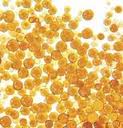
There is a lot of chatter about bioresins, biodegradables, and oxodegradables but what are the myths, the truths, and do they all have a place in the total plastics sustainability strategy?
Renewables or bioresins, in the plastics sense, are plastics made from organic sources vs. fossil fuels (although fossil fuels are renewable, in a long-term sense).
Truth: Everyone is concerned about the environmental challenges related to using plastics. Myth: Plastics made from renewable resources will solve all the problems associated with taking environmental responsibility for using plastics.
Truth: Not all bioresins are created equally; renewable plastics that are produced from plant products are chemically identical to fossil-fuel-derived plastics. The only difference is the feedstock for the ethylene that is produced. Not all bioresins are equal to a petroleum-based resin. Not all biobased resin has an established market for recycling. Not all biobased resins are degradable or compostable.
Myth: Shouldn’t a non-fossil-fuel-derived plastic be enough to satisfy the needs to be green and reduce environmental impact? Not really. When thinking about the benefits and consequences of use, there is really no difference. The plastic is the same. Whether or not plastics are produced from fossil fuel or plant fuel, they won’t solve the municipal solid waste problem.
Broad claims of carbon footprint reduction by using plant-based plastics are true. Plants take in CO2 and give off oxygen. The “sequestering” of CO2 is what enables plant-based resins to claim to have a positive carbon footprint. This narrow view of environmental friendliness does not take into account land use consequences, water consumption, environmental impact of fertilizer use, nor the amount of energy used to produce and transport the plastic resin.
Now for the consequences. Oxydegradables will break down on exposure to oxygen over the long term. They are useful for short-term applications, but can cause serious problems in the recycling industry if they get integrated into the plastics that are going back into the resin production cycle.
Biodegradables break down organically, not necessarily from exposure to air, but that does help promote the degradation. Again, this resin is useful for short-term applications similar to oxydegradables. Both of these cannot be mixed with non-degradable resins and still retain the base resin’s properties when processed as post-consumer resins (PCR). Without clear labeling, this creates significant challenges for waste stream processors for sorting and for plastics reclaimers in keeping these resins out of the recycling stream.
Not to be down on plastics made from renewable resources as they are a positive development and one that should be part of the overall plan to reduce the impact on the environment. The main concern is that focus will be taken away from the real issues at hand, if people are led to believe that renewables will solve plastics’ negative environmental image.
By: Tamsin Ettefagh, vice president, Envision Plastics
Published in May 15, 2013
www.packstrat.com
[ add comment ] ( 61 views ) | permalink |




 ( 3 / 2697 )
( 3 / 2697 )

 Calendar
Calendar